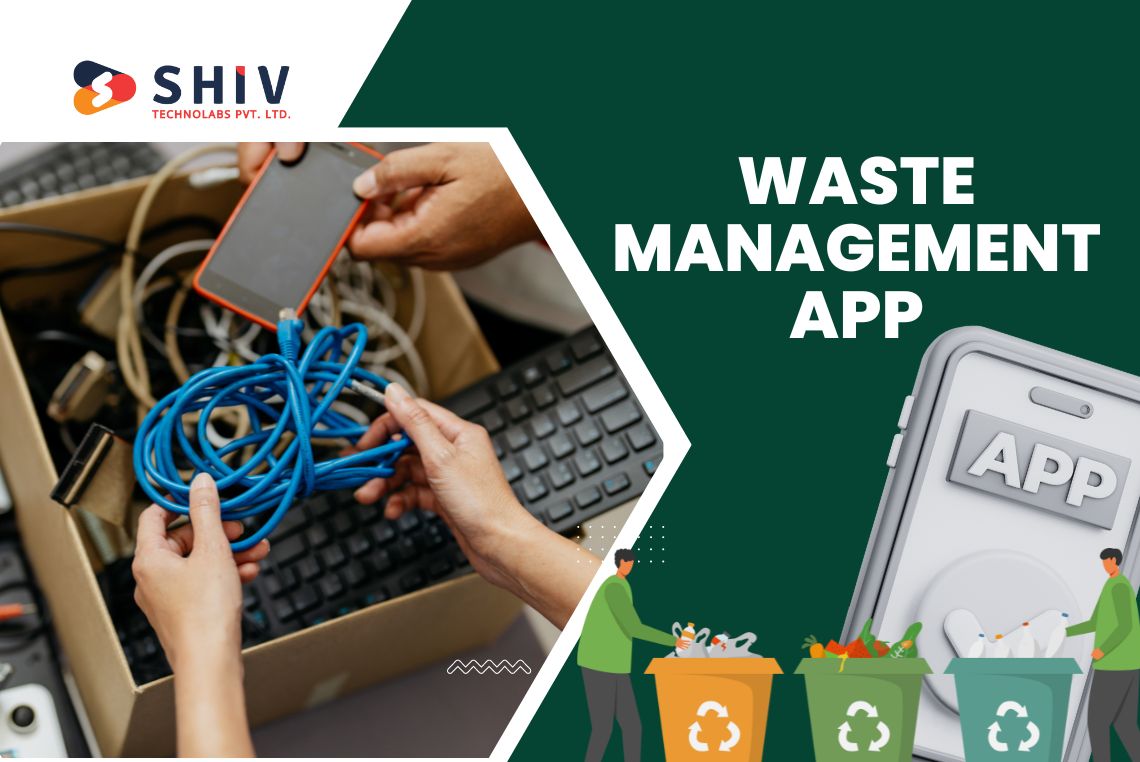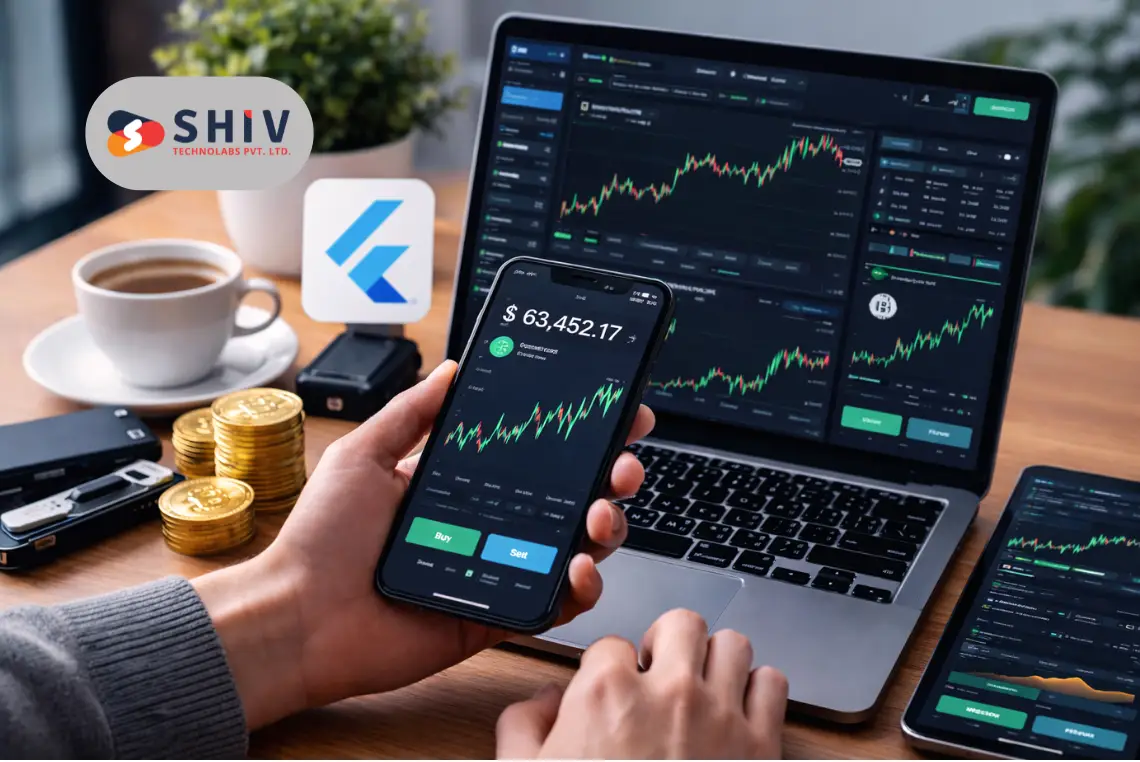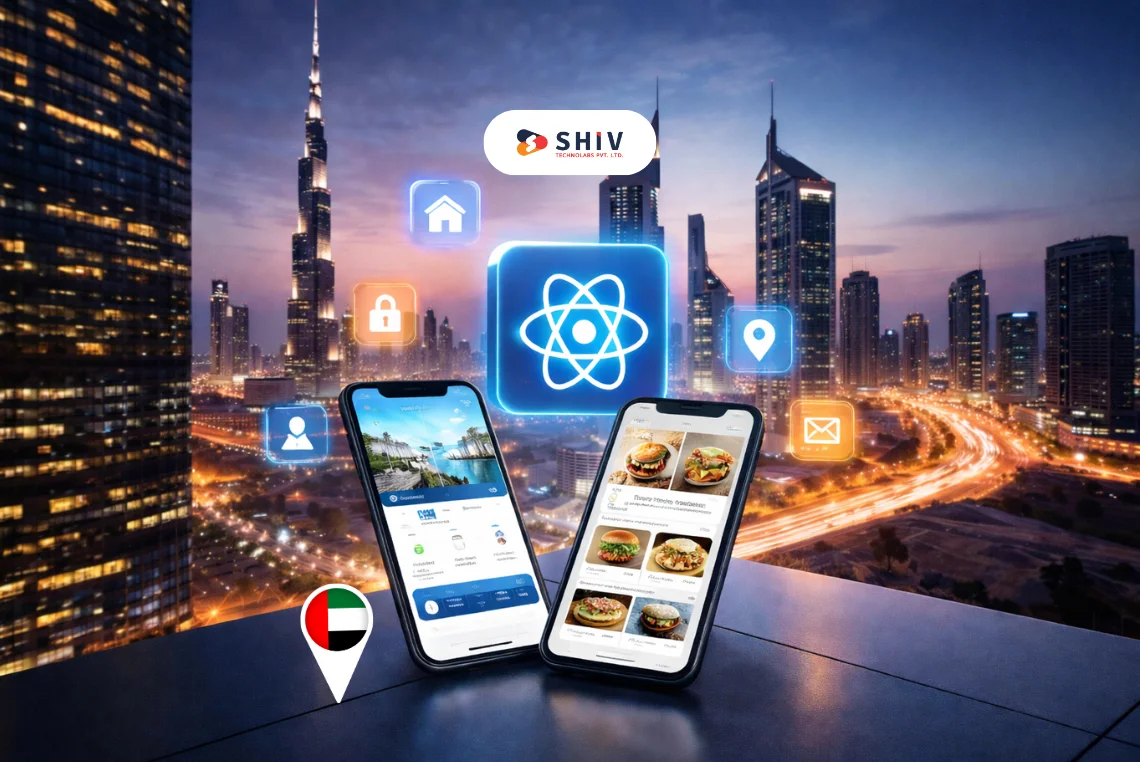Table of Contents
Waste management deals with trash in a smart and eco-friendly way. It includes picking up, moving, treating, recycling, and getting rid of waste properly. It is vital in handling the hazards of improper waste disposal such as pollution, health risks, and destruction of habitats. All the waste management activities, from gathering the waste to recycling it and the monitoring phase, fall under waste management. In this digital age, technology plays a pivotal role in addressing these challenges, with mobile applications emerging as powerful tools to streamline waste management processes and promote. Digital transition and mobile development have created a pathway to a new era full of new opportunities and this has immensely impacted human behavior and global governance.
In this blog, we will discuss the in and out of waste management apps, the business model of waste management apps, the challenges and much more.
Why Waste Management App Development is Important?
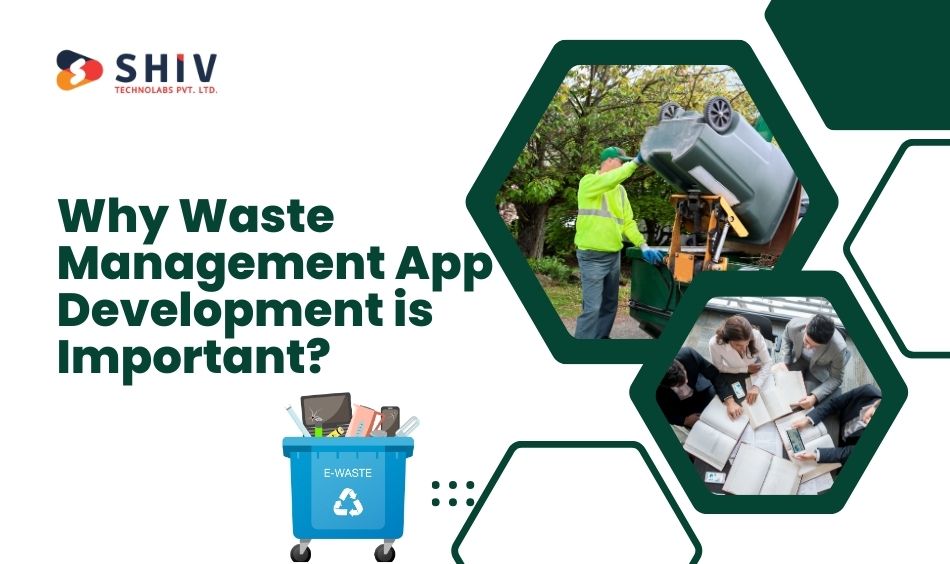
Technological innovation provides pivotal approaches to solving the challenges in the current digital world, whereby mobile applications have become important tools for harmonizing waste-handling processes and recommending them. There is a growing need for waste management applications because the significance of waste management has steadily grown along with improving technology.
The applications for waste management are becoming essential weapons against pollution and the destruction of natural environmental systems.
Simply put, a waste management app is a mobile software meant to make the process of collecting, disposing, and recycling waste easier and more efficient. Efficiency improvement is the main aim of waste management app development, to ensure they have less environmental impact while fostering sustainable practices for handling different types of waste.
Technology is often utilized to operate as the bridge amongst different participants involved in this process like creators of refuse items themselves, organizations responsible for collecting these kinds of things, and companies involved in reprocessing them and so on.
The rising importance of waste management and technological advancement have increased the demand for waste management apps. In 2023, Waste Management Software Market size was valued at USD 6.5 Billion and as forecasts suggest, it will grow at a CAGR of 7.2% touching USD 14.37 Billion by 2030.
Types of Waste
- Solid Waste: This is the most common category, and the most known one, and encompasses everything from old clothes to leftovers on plates at home or furniture thrown away in dumpsters.
- Hazardous Waste: Any kind of material that is dangerous for people’s lives or harms nature falls under this classification. Some examples are medical garbage, leftover color paints, used batteries, and others.
- E-waste: It comprises obsolete electrical devices such as mobile devices, computers, and other appliances that are no longer functioning.
- Recyclable Waste: Some materials like paper, glass, plastics, and metals can be made into new products through different processes so that we don’t depend on pristine materials but promote a circular economy.
- Green or Organic Waste: In terms of composting, this group includes food remains most people throw away, trimmings from the yards, and other biodegradable substances that can serve as garden fertilizer.
How Does a Waste Management App Work?
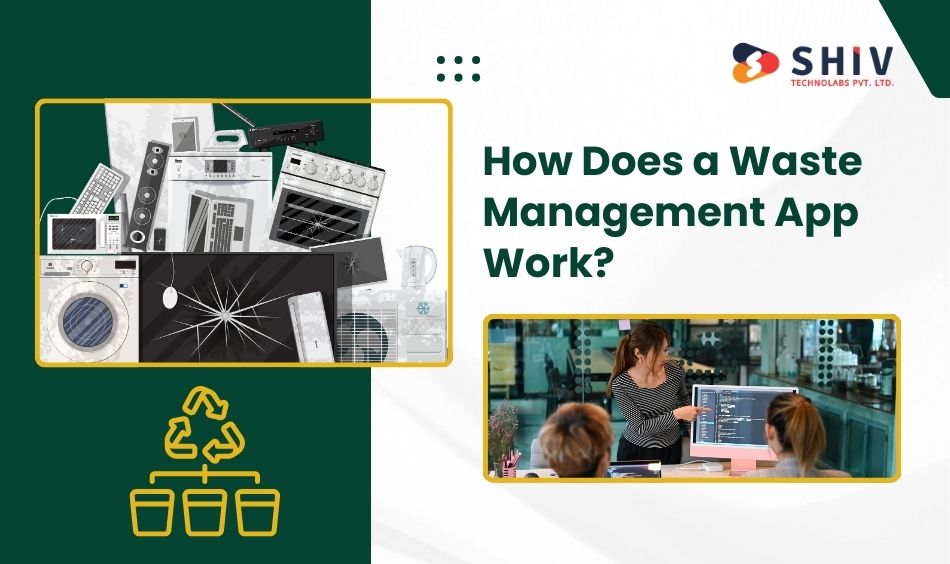
The waste management apps are meant for improving the efficiency and sustainability of the waste management procedure. They act as a link between citizens and waste disposal services. The operation of the apps includes the following steps,
For Waste Management Services:
- Optimizing Routes: Efficient collection routes using less fuel and emitting fewer emissions can be made using real-time data on bin fill levels.
- Improved Communication: A direct line of communication between residents and waste management services is created by the apps. This quickens the process of answering queries and requesting services.
- Data Insights: Data offers crucial insight on the patterns of waste generation. This helps in taking wise decisions on managing waste sustainably.
For Users:
- Convenient Scheduling: The user-friendly app interface offers a hassle-free experience. It becomes easier to schedule waste collection and plan additional pickups.
- Waste Sorting Advice: The waste management app recommends users to dispose of waste responsibly by providing clear and thorough sorting instructions for different types of wastes.
- Real-time Tracking: The users remain updated about the whereabouts of the waste collection vehicle and never miss the scheduled pickup times.
- Issue Reporting: The app can be used to report issues like overflowing trash cans or missed pickups quickly.
Advantages of Waste Management App Development
There are several advantages of developing a waste management app. Here are some of the crucial ones.:
# Real-time Monitoring:
This makes it easier for waste management authorities to track collection activities. This feature brings visibility into daily operations, enables quick responses to issues like missed collections, route deviations, or equipment malfunctions.
# Data Analytics for Optimization:
The waste management app integrates data analytics features to analyze historical and real-time data on waste generation. This information helps authorities properly identify trends, optimize collection schedules, and allocate resources.
# User-Friendly Issue Reporting:
Another benefit of a waste management app is it provides users with an easy way to report issues like overflowing bins, missed collections, or illegal dumping.
# Effective Collection Scheduling:
A waste management app optimizes the routes and schedules of waste collection. This reduces fuel consumption, minimizes travel time, and improves overall efficiency.
# Promoting Recycling:
This feature promotes recycling activities, and implements reward systems, discounts, or other incentives, encouraging residents to participate actively in recycling programs.
# Assessment of Environmental Impact
This facilitates tracking key performance indicators related to waste management and continuously assess the environmental impact of waste management practices.
# Reducing Cost
The waste management app simplifies reduces paperwork, administrative processes, and improves overall operational efficiency.
Types of Waste Management Apps
Your waste management app development service can integrate advanced technologies such as cloud systems, smart bin management, AI, IoT, and real-time monitoring to optimize waste management and e-waste reuse. Here are some of the most popular types of waste management apps that people are actively using:
Apps for Tracking Waste & Fleet Management
- Function: These applications track waste collection vehicles in real-time by enabling fleet managers to observe the routes taken by garbage trucks, drivers’ behavior, as well as fuel use.
- Benefits: Waste tracking applications provide improved collection paths and minimize fuel usage while enhancing the efficiency of the entire fleet through real-time information about how people drive, encouraging careful driving.
Management of Weighbridge App Programs
- Function: The weighbridge process can be automated by these apps, resulting in easier data collection methods and minimizing mistakes. They aim to provide accurate waste weight through GPS tracking (often embedded), RFID tags on trucks, or even barcode scanners.
- Benefits: With this application, you can expect more streamlined operations, faster weighbridge transactions, and up-to-date information that can serve as valuable input for waste management planning.
Waste Compliance Apps
- Function: These applications enhance compliance with complex waste management regulations in the USA. They assist with waste storage documentation, report generation, and time tracking, while ensuring adherence to environmental regulations for each activity related to waste disposal.
Such applications ultimately result in reduced chances of incurring fines and penalties due to noncompliance. Also, they centralize the management of documents used when discarding wastes making them easier during inspections as well as audits.
Apps for Management and Maintenance of Asset
- Function: These apps are designed to keep track of and manage physical assets used in various waste management activities, such as collection trucks, processing equipment, and dumpsters. They often utilize QR code inventory tracking to maintain a centralized asset service and data history.
- Benefits: Asset maintenance applications help prevent equipment failures, reducing downtime and optimizing maintenance schedules. They also provide valuable performance information, aiding in decisions about purchasing or refurbishing equipment.
Apps for Management and Maintenance of Asset
- Function: These apps are designed to keep track of and manage physical assets used in various waste management activities, such as collection trucks, processing equipment, and dumpsters. They often utilize QR code inventory tracking to maintain a centralized asset service and data history.
- Benefits: Asset maintenance applications help prevent equipment failures, thereby reducing downtime and optimizing maintenance schedules. They also provide valuable performance data, which aids in making informed decisions about purchasing or refurbishing equipment.
Waste Recycle Applications
- Purpose: This application helps individuals, communities, and companies manage and recycle waste more effectively. It includes features such as waste classification instructions, reminders for recycling collection dates, and guidance on sustainable waste disposal practices.
- Advantages: The application increases recycling rates by encouraging more frequent recycling, reduces the volume of trash sent to landfills, and educates citizens on ecological conservation.
E-waste Recycling App
You should be aware that there are certain applications meant to help individuals who wish to discard their outdated electronic devices in the right way by recycling them. These programs may provide users with the addresses where they can take their old gadgets or find out about e-waste disposal occasions. Additionally, some of these apps teach people how to delete private information from old phones before disposing of Considering the growing amount of waste produced from electronics today, these apps become useful. You can hire a waste management app development company and create an app in this category as it is increasingly becoming popular among users.
Waste Management App Integration
Waste management apps offer comprehensive solutions for eco-conscious users. The apps make way to integration services to enhance functionality and user experience. These integrations eliminate the gap and promote effective waste management experience.
1. Municipal Database Integration for Collection Schedules:
Integration with municipal databases permits waste management apps to offer accurate and updated waste collection schedules.
2. GIS Integration for Location-Based Services:
Geographic Information System (GIS) integrations makes waste management apps better by introducing accurate mapping and location-based services.
3. IoT Sensors for Smart Bin Monitoring:
The Internet of Things (IoT) integration adds smart bin monitoring facilitiesto waste management apps.
4. eCommerce Integrations for Sustainable Product Purchases:
Collaborations with eCommerce applications allow waste management apps to promote sustainable options for consumers.
5. Analytics Platforms for User Insights:
Integrating with analytics platforms aids waste management apps to gather valuable user insights.
6. Social Media Integration for Community Engagement:
Integrating with social media apps enhances community engagement within waste management apps.
Cost of Building Waste Management App
Development of a waste management app constituting basic features like user registration and waste pickup schedules can cost around $25,000 to $60,000 or more. Including advanced features like Payment integration and GPS tracking will increase the price from $60,000 to $120,000 plus. The total cost also depends on the platform chosen such as, Android, iOS, or both and the required level of customization.
Conclusion
An application for waste management is one of the strategic moves towards a cleaner and more sustainable future. Waste management companies face many challenges, yet these apps provide efficient solutions such as optimizing routes and promoting recycling as well as community involvement.
Therefore, it is worth investing in such an app because of its revenue potential and sustainability. With waste management app development you can go a long way in creating a better planet and ensuring that changes made will last. Taking advantage of technology for responsible waste management is not just a trend; it’s a step towards a greener planet and a commitment to lasting positive change.
At Shiv Technolabs, we are here to assist you in taking this strategic step and contributing to a world where waste is managed efficiently and responsibly.

